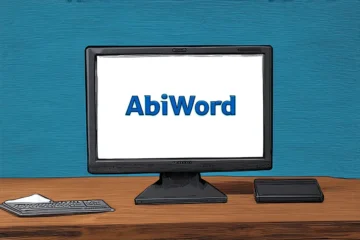This article compares various tools for shortening URL. We will take a look at different open source and paid URL shortening services, including self-hosted solutions and SaaS options. URL shortening is the process of converting long URLs into shorter ones. This can be done for a variety of reasons, such as making the links easier to remember and type, or to track clicks. There are many different URL shortening services available, both free and paid.
Introduction
URL shortening services provide a convenient way to shorten long URLs and track clicks. In this article, we will explore different methods to shorten URLs and explore their pros and cons. These include paid SaaS, open source solutions, self-hosted options, and custom scripting. We’ll also touch upon web-based proprietary services that provide APIs.

What is URL Shortening and Why is it a popular?
URL shortening is the process of converting a long website address (known as Uniform Resource Locator) into a shorter address. This is done by using a service that generates a short code instead of the longer original link. The short code can then be used to visit the original address.
There are many reasons why people might want to use short links. Some of the most common reasons include:
- To make the links easy to remember and type. Long addresses can be difficult to manage on mobile devices.
- To overcome character limit. This was true for number of characters in Social Media and Text Messages. (In the era of WhatsApp and longer character limit for Twitter and other sites, this may not be a factor anymore).
- To track clicks. Many URL shortening services allow you to track how many people click on your shortened links.
Disadvantages or limitations
Some of the downsides of URL shortening:
Trust: Shortened URLs may appear less trustworthy. Users might be hesitant to click on unfamiliar shortened links due to unfamiliar address.
For example, if I were to use the short link amar.link/l/url-blog instead of the address for this post, which is https://amar.link/notes/admin/comparing-methods-getting-short-urls, new users might not be aware that I also own the domain amar.link, and the short link will lead them to this very page.
Dependency on the service: If the URL shortening service ceases to exist or experiences downtime, the shortened links may become inaccessible or broken. For example, the amar.link/l address uses joturl as its backend (or bit.ly prior to that). If joturl goes down, then the short link becomes useless.
Lack of SEO benefits: Shortened URLs typically do not provide any search engine optimization (SEO) benefits. This is possibly the most visible shortcoming.
Broken links: Over time, the page that the short link leads to, might be taken down or not accessible. The short link then would no longer remain useful. This is also known as Link Rot.
http://bit.ly/2kDSHjQ February 06, 2017 at 10:58AM
Example of “Link Rot” from my own blog. The blog post has been deleted, and the bit.ly link leads to my main blog’s page.
Some Well Known URL Shortening Services
| Solution | Type | Features in a nutshell |
|---|---|---|
| Polr | Open Source, Self-hosted | Interface with analytics and customization options |
| YOURLS | Open Source, Self-hosted | Full control over customization and analytics |
| Kutt | Open Source, Self-hosted | Custom domains, password protection, and detailed analytics |
| SaaS | User-friendly interface, link customization options, and detailed analytics | |
| Bitly | SaaS | Link management, analytics, and branded links |
| TinyURL | SaaS | Quick short links |
Types of tools for shortening URL
Let us take a look at some Free, freemium, open source and proprietary tools for shortening URL or webpage links.
Category 1: Paid SaaS or Freemium SaaS Services
Paid SaaS or freemium SaaS services provide convenient and feature-rich solutions for URL shortening. Platforms like Rebrandly and Bitly offer user-friendly interfaces, analytics, and customization options. These services often come with subscription or usage-based pricing models, catering to different needs and budgets. Most free services offer basic URL shortening, advanced features are available in paid tier for such services.
Basic URL shorteners
These are the most simple and straightforward type of URL shortener. They simply take a long URL and shorten it into a shorter, more manageable URL. Example: bit.ly. Some more examples are mentioned below.
TinyURL: It is a simple and straightforward URL shortener that allows you to create short and compact links. It does not offer advanced analytics or tracking capabilities.
Ow.ly: A URL shortener provided by Hootsuite, a social media management platform. It integrates well with Hootsuite’s social media tools and provides basic analytics for tracking link performance.
| Features of Basic URL Shortners
Easy to use Quickly generates a short URL No registration required Limited tracking and analytics capabilities |
Custom URL shorteners
These types of URL shortners allow users to create their own branded short URLs, which can help to improve brand recognition and consistency. Example: joturl and rebrand.ly
Custom domain for shortening URL

| Features
Customizable URLs with unique branding Ability to track clicks and engagement Advanced analytics and reporting tools Integration with existing marketing tools and platforms |
Category 2: Enterprise URL Shortners
Enterprise URL shortners are designed for large organizations or businesses with a high volume of link sharing needs. They often offer advanced features and customization options, as well as extensive performance tracking and reporting tools. Example: bitly.com/enterprise
Joturl Custom Domain configuration

| Features of Custom URL Shorteners
Customizable branding and domain options Extensive link tracking and performance reporting Integration with existing marketing tools and platforms Advanced security and compliance features for large organizations |
Category 3 : Open Source and Self-Hosted Solutions
For those who prefer more control and customization, open source solutions like Polr and YOURLS can be a great choice. These self-hosted options allow you to set up your own URL shortening service, providing flexibility and the ability to tailor the experience to your requirements. There are a few options you can consider in self-hosted space.
Polr: Polr is a free and open source URL shortener that you can self-host. It provides a clean and user-friendly interface with analytics and customization options.
YOURLS: YOURLS (Your Own URL Shortener) is another popular open source option. It allows you to create and manage your own URL shortening service, giving you full control over the customization and analytics.
Kutt: Kutt is an open source URL shortener written in Node.js. It offers features like custom domains, password protection, and detailed analytics.
Category 4: Custom Scripting
(for advanced users) In addition to the above options, you can write your own script or program to create short links using an API provided by a URL shortening service. Many services offer APIs that allow you to generate short links programmatically. Goo.gl CLI was another tool that was popular in the day.
cURL: You can use the cURL command-line tool to interact with URL shortening services that provide APIs. By making HTTP requests with cURL, you can programmatically create short links using services like Bitly or TinyURL.
Category 5: Plugins for Content Management Systems
Many Content Management Systems or CMS’es such as WordPress have plugins that create shortlinks for blog posts and pages.
WordPress Plugins If you have a WordPress website, you can explore various plugins available that offer URL shortening functionality. These plugins integrate with popular URL shortening services or provide their own shortening capabilities within the WordPress ecosystem.
Category 6: Social Media-focused URL Shorteners
Social media-focused URL shorteners prioritize integration with social media platforms, allowing users to easily share links on their social media profiles. Example: po.st
| Features
Optimized for social media sharing Includes tools for tracking social media engagement, such as likes, shares, and comments Integrates with popular social media platforms Provides insight into social media trends and audience behavior |
Conclusion: tools for shortening URL
Having a URL shortening service can be helpful for tracking clicks and shortening long URLs. Open-source solutions provide more control and customization, while SaaS solutions provide ready-made solutions that are easy to launch. Consider the features and options of different solution providers (LongURL and Sniply are other noteworthy mentions) to determine the best fit for your needs.
हिंदी में सारांश
यूआरएल लघुकरण लंबे यूआरएल को छोटे में बदलने की प्रक्रिया है। ऐसा कई कारणों से किया जा सकता है, जैसे लिंक को याद रखना और टाइप करना आसान बनाना, या क्लिक को ट्रैक करना। कई अलग-अलग यूआरएल लघुकरण सेवाएं उपलब्ध हैं, दोनों मुफ्त और भुगतान किए गए हैं। कुछ सबसे लोकप्रिय सेवाओं में bit.ly, और tinyurl.com शामिल हैं।
मराठीत सारांश
यूआरएल लघुकरण ही लांब यूआरएलला लहानमध्ये रूपांतरित करण्याची प्रक्रिया आहे. हे विविध कारणांसाठी केले जाऊ शकते, जसे की लिंक लक्षात ठेवणे आणि टाइप करणे सोपे करणे, किंवा क्लिक ट्रॅक करणे. विनामूल्य आणि शुल्क दोन्ही प्रकारच्या अनेक यूआरएल लघुकरण सेवा उपलब्ध आहेत. सर्वात लोकप्रिय सेवांपैकी काही म्हणजे bit.ly, आणि tinyurl.com.

Custom Domain for bit.ly


